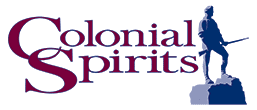Due to Bourbon’s popularity these days and the recent passing of our nation’s birthday, I thought it would be appropriate to discus the history and the exact requirements that go into producing our country’s official spirit. It is fairly easy to figure out how Irish whiskey or Scotch Whisky got their names, but the way Bourbon got its name is slightly more convoluted. How Bourbon became Bourbon is really an interesting story.
It all started in 1791 when the Continental Congress put a tax on whiskey production in order to help pay for America’s debt. So angry were the the settlers of Western Pennsylvania that they refused to pay! As tensions escalated George Washington was forced to send the Continental Army to stop a potential uprising. However the situation turned out to be trickier to solve than anticipated and in order to prevent any political humiliation and further trouble with the stubborn Scotch-Irish, Washington came to an agreement with them by offering them incentives for moving to Kentucky (then part of Virginia).
Thomas Jefferson, the Governor of Virginia, offered these settlers sixty acres of land as long as the agreed to place a permanent structure on the land and grow only native corn. The only problem was no family could ever consume sixty acres of corn, and it was far too bulky and perishable to store or transport. However, if the corn were converted to whiskey all problems would be solved. This is significant because early whiskeys were made from rye, not corn like Bourbon is today. Kentucky became a state in 1792, and Bourbon was one of its counties. Bourbon County got its name after the French who assisted us in the Revolution. French names were given to particular settlements and counties. Bourbon County was named after the French royal family of Bourbon.
Rumor has it that Bourbon got its name and start with the Reverend Elijah Craig. The Reverend was the thrifty type and supposedly used old barrels to transport his whiskey to market in New Orleans. He charred the inside of the oak barrels before filling them. The long trip from Kentucky to New Orleans caused the whiskey to mellow in the barrels and imparted a light caramel color. The good Reverend called it Bourbon Whiskey, since it was from Bourbon County, Kentucky.
In 1964, a congressional resolution was instituted in order to protect the term “Bourbon” causing the product to be officially defined for the fist time since the Reverend invented our native spirit. The act stipulated that the basic elements of Bourbon are as follows: it must be aged for at least two years, it must be distilled under 160 proof and be made of at least 51% corn, and, finally, it must be aged in charred new oak barrels. Though the law does not stipulate where the spirit must geographically originate from, 99% of all Bourbon whiskey comes from Kentucky. Most consider the limestone spring water found in Kentucky to be the only water with the proper combination of minerals necessary to produce a fine Bourbon.
